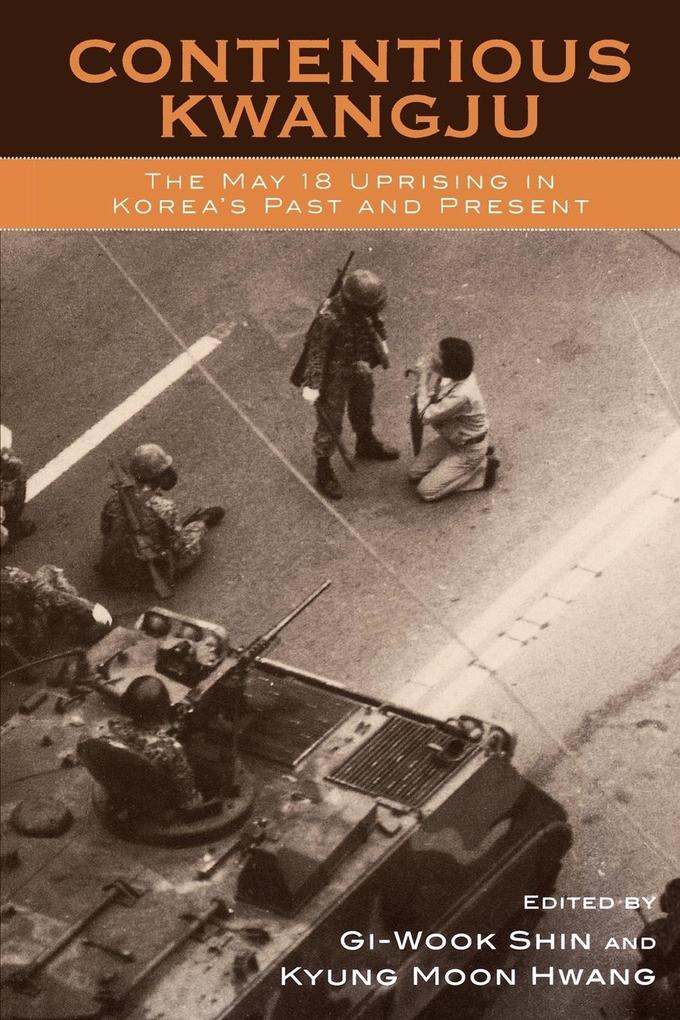
Zustellung: Sa, 24.05. - Mi, 28.05.
Versand in 6 Tagen
VersandkostenfreiBestellen & in Filiale abholen:
One of the largest political protests in contemporary Korean history, the May 1980 Kwangju Uprising still exerts a profound, often contested, influence in Korean society. Through a deft combination of personal reflections and academic analysis, Contentious Kwangju offers a comprehensive examination of the multiple, shifting meanings of this seminal event and explains how the memory of Kwangju has affected Korean life from politics to culture. In keeping with the book's title, the essays offer competing interpretations of the Kwangju Uprising, yet together provide the most thorough English-language treatment to date of the multifaceted, sweeping significance of this seminal event.
Inhaltsverzeichnis
Introduction 1 Contentious Kwangju Part I 2 Origins and Development Chapter 1 3 The Formation of an Absolute Community Chapter 2 4 Simin'gun: Citizens' Army during Kwangju Uprising Chapter 3 5 An American Missionary's View Chapter 4 6 Has Kwangju Been Realized? Part II 7 Legacy and Representation Chapter 5 8 From Heroic Victims to Disabled Survivors: The 5. 18 Injured after Twenty Years Chapter 6 9 The Kwangju Uprising as a Vehicle of Democratization: A Comparative Perspective Chapter 7 10 Victims and Heroes: Competing Visions of May 18 Chapter 8 11 Re-inventing the Region: The Cultural Politics of Place in Kwangju City and South Cholla Province Afterword 12 The Historical Watershed
Mehr aus dieser Reihe
Produktdetails
Erscheinungsdatum
11. Juni 2003
Sprache
englisch
Seitenanzahl
194
Reihe
Asia/Pacific/Perspectives
Herausgegeben von
Kyung Moon Hwang, Gi-Wook Shin
Verlag/Hersteller
Produktart
kartoniert
Gewicht
290 g
Größe (L/B/H)
229/152/11 mm
ISBN
9780742519626
Entdecken Sie mehr
Pressestimmen
Shin and Hwang splendidly interlace the complexity of the 5-18 Kwangju democratization movement, a defining moment in Korean history. Journal Of Asian Studies This book deserves the attention of those with general interests in social movements and historical memory. More specifically, the volume should be carefully studied by students of democratic transitions, and by all observers of South Korea's recent history and contemporary social and political life. American Historical Review Combining vivid eyewitness reflections (part 1) with insightful scholarly analyses of the uprising's outcomes (part 2), the editors of this volume, Gi-Wook Shin and Kyung Moon Hwang, endeavor to provide a balanced and comprehensive reassessment of the Kwangju uprising. Together, these essays constitute a comprehensive study of the multiple and shifting meanings of this seminal event. This book is by far the most balanced and comprehensive English-language reassessment of the events. Contentious Kwangju offers a superb and multifaceted lecture on the politics of memory surrounding the Kwangju uprising and is required reading for anyone interested in the history of Korean democratization. American Journal of Sociology This is a fascinating book and I applaud the editors' efforts to examine the Kwangju massacre with some historical perspective. The passage of time has led to a more accurate view of those tragic events both with respect to the individual assesments of the impact on individual lives as well as the critical role it played in the democratization of Korea. Korean Quarterly Contentious Kwangju is a must-read for scholars of contemporary Korean history and those interested in issues of civil society, democratization, and contested visions of the past more generally. Gi-Wook Shin presents a masterful overview of the events of May 1980, impressive for both its breadth and brevity. Journal Of Asian Studies An excellent and indispensable work, a first of its kind, weaving vivid eyewitness accounts with a range of insightful scholarly perspectives that probe the multiple meanings of one of the great, defining moments in the history of Korean democratization. -- Carter J. Eckert, Harvard University
Bewertungen
0 Bewertungen
Es wurden noch keine Bewertungen abgegeben. Schreiben Sie die erste Bewertung zu "Contentious Kwangju" und helfen Sie damit anderen bei der Kaufentscheidung.





























